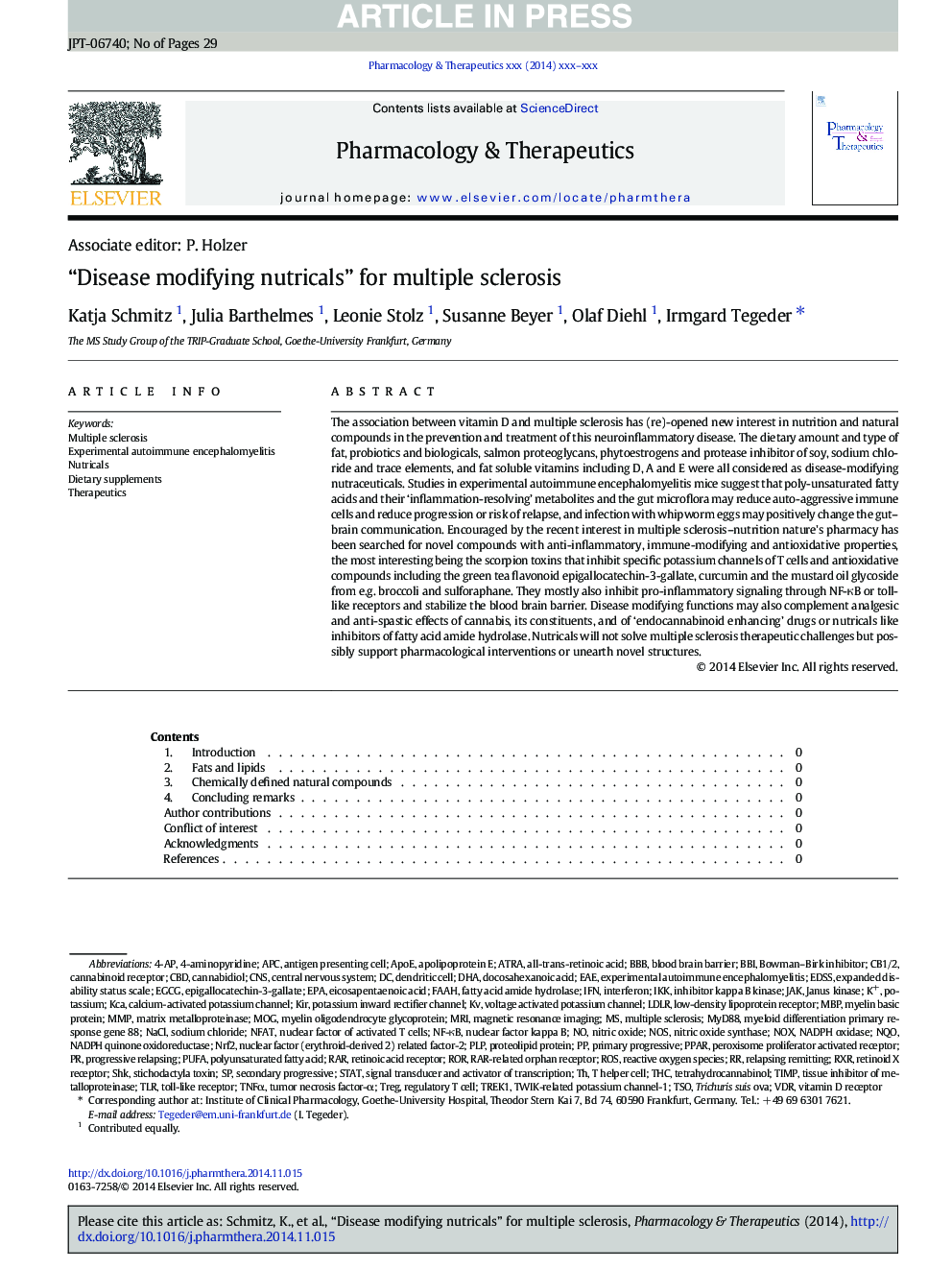| Article ID | Journal | Published Year | Pages | File Type |
|---|---|---|---|---|
| 5843975 | Pharmacology & Therapeutics | 2015 | 29 Pages |
Abstract
The association between vitamin D and multiple sclerosis has (re)-opened new interest in nutrition and natural compounds in the prevention and treatment of this neuroinflammatory disease. The dietary amount and type of fat, probiotics and biologicals, salmon proteoglycans, phytoestrogens and protease inhibitor of soy, sodium chloride and trace elements, and fat soluble vitamins including D, A and E were all considered as disease-modifying nutraceuticals. Studies in experimental autoimmune encephalomyelitis mice suggest that poly-unsaturated fatty acids and their 'inflammation-resolving' metabolites and the gut microflora may reduce auto-aggressive immune cells and reduce progression or risk of relapse, and infection with whipworm eggs may positively change the gut-brain communication. Encouraged by the recent interest in multiple sclerosis-nutrition nature's pharmacy has been searched for novel compounds with anti-inflammatory, immune-modifying and antioxidative properties, the most interesting being the scorpion toxins that inhibit specific potassium channels of T cells and antioxidative compounds including the green tea flavonoid epigallocatechin-3-gallate, curcumin and the mustard oil glycoside from e.g. broccoli and sulforaphane. They mostly also inhibit pro-inflammatory signaling through NF-κB or toll-like receptors and stabilize the blood brain barrier. Disease modifying functions may also complement analgesic and anti-spastic effects of cannabis, its constituents, and of 'endocannabinoid enhancing' drugs or nutricals like inhibitors of fatty acid amide hydrolase. Nutricals will not solve multiple sclerosis therapeutic challenges but possibly support pharmacological interventions or unearth novel structures.
Keywords
EPABowman–Birk inhibitorInhibitor kappa B kinaseBBIKCaIKKKirFAAHEDSSEAE4-APAPCEGCGEpigallocatechin-3-gallateCBDJanus kinase4-aminopyridineatRAexperimental autoimmune encephalomyelitisApoeapolipoprotein EFatty acid amide hydrolaseEicosapentaenoic acidDocosahexanoic acidall-trans-retinoic acidinterferonIFNCNSDHABBBblood brain barrierDendritic cellantigen presenting cellcentral nervous systemExpanded Disability Status ScalePotassiumJAKCannabidiolCalcium-activated potassium channelcannabinoid receptor
Related Topics
Health Sciences
Pharmacology, Toxicology and Pharmaceutical Science
Pharmacology
Authors
Katja Schmitz, Julia Barthelmes, Leonie Stolz, Susanne Beyer, Olaf Diehl, Irmgard Tegeder,
